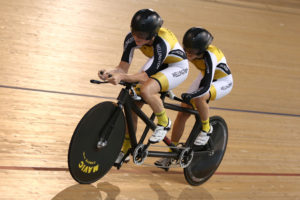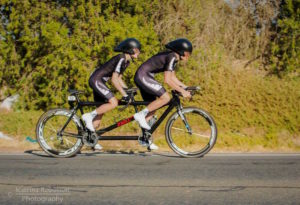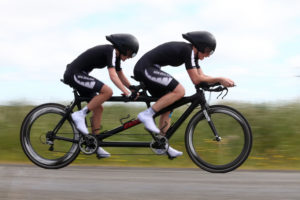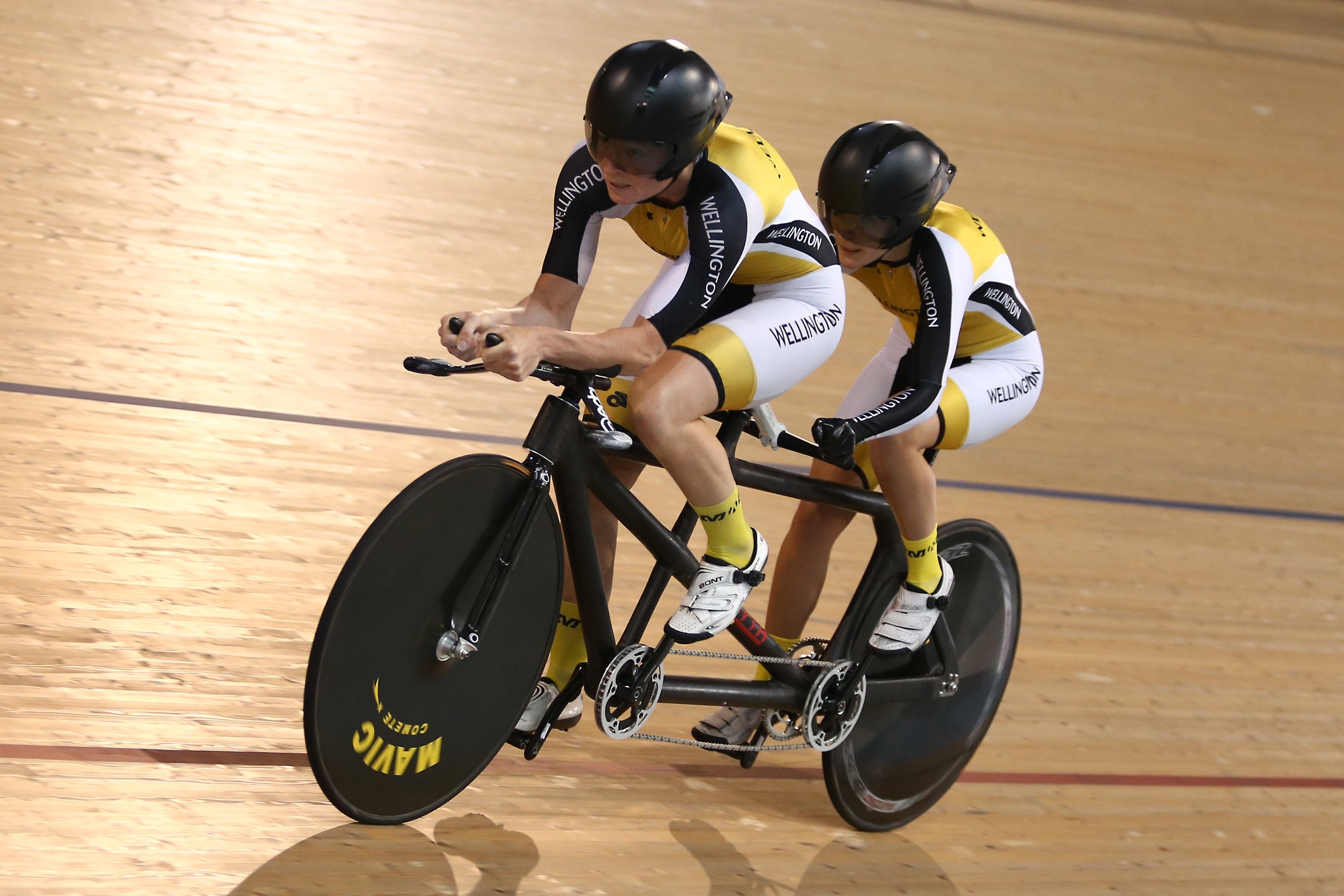
QK: Congratulations on being selected in the NZ Paralympic team. How did you receive the news that no doubt changed your cycling career?
AC: Thank you. It was a real surreal feeling getting the confirmation that I was in the team. A few months earlier I thought I’d run out of chances as I missed out on Road Worlds last year and had only taken up track cycling before Christmas last year. The first event on track I missed the qualifying time for Track Worlds by two seconds. However an opportunity to race with a different pilot came up and we ended up working really well together and came 5th in the world. It just goes to say that you should never give up as something else might come along.
QK: You are reasonably new to the sport of cycling. How did you find your way to the top end of the para-cycling field?
AC: There was a lot of pressure initially. I was working full time and it was tough having to learn really, really quickly how to juggle training and work. The first two years of competing was all self-funded so it was both mentally and financially hard. I was really determined to prove to myself that I could get to the Paralympics. The hardest part is to keep going when you keep failing. You just have to keep positive and keep working towards your goals.
QK: How do you function on the bike with your limitations compared to both able bodied and other competitors in your category?
AC: Other than tandem rides, I train on a single bike on an erg. My balance is affected by my Usher Syndrome (which is profound deafness and retinitis pigmentosa which means I don’t have any peripheral vision) so it can be difficult riding a road bike on my own. The classification that I ride in is called B/VI which means blind/vision impaired so it involves a wide range of vision losses between our competitors. It doesn’t mean hearing impairment so that is one disadvantage I have over others who might have perfectly good hearing because I miss out on hearing other tandems shift gears before attacking or I might miss instructions from my pilot. We do have a microphone system in place but it’s not perfect (i.e. it’s not weather or sweat proof). The way to get around it is to stay really focused and respond to the pilot as well as I can.
 QK: You have a strong reliance on your pilot. How long have you worked with her? Are they allocated through the High Performance (HP) programme or have you been working with her longer and she has come up with you to be part of the HP programme?
QK: You have a strong reliance on your pilot. How long have you worked with her? Are they allocated through the High Performance (HP) programme or have you been working with her longer and she has come up with you to be part of the HP programme?
AC: Paralympics New Zealand (PNZ) staff and coaches find the pilot. My pilot, Hannah van Kampen, is also Emma Foy’s (another stoker in the NZ team) reserve pilot. Hannah had begun training with her when our head coach decided to try us out together on the track. We have only been riding together since February this year. As a stoker, you learn to trust the pilot quickly. You have to, otherwise you end up fighting each other on the bike. Fortunately PNZ has been great at picking experienced riders who have been able to adapt to piloting well.
QK: What is the atmosphere at the High Performance centre like? Do you have much interaction with the athletes from the other sports?
AC: I have only been in Cambridge three weeks. Prior to that I only had minimal contact with other athletes via the High Performance Sport NZ gym in Wellington. The centre here is great. We don’t interact too much with other athletes other than in passing or in the athlete’s lounge, but they have all been friendly. Both the facilities and everyone’s attitudes are really professional and it’s a very motivating environment.
QK: What is your favourite cycling workout?
AC: It’s hard to pick one. I definitely like our track sessions, but I also really enjoy the road rides as a lot of the time I’m on the erg indoors so it’s great to be on the tandem seeing different scenery and also ride on various terrains.

QK: What have you learned over the last 12 months that more people should know?
AC: Attitude makes a huge difference to what you’re doing and what you want to do. Even though I have faced barriers and even been told that I wouldn’t be good enough for track, it’s important to maintain a professional yet positive attitude. You can do anything you want as long you’re willing to put in the hard yards. It wasn’t fun waking up at 4.30am to train on the erg before working a full day in a office over the last two years, but I had a goal to work towards. Strong mentality – this is something I learnt in the last few years
QK: What are the two biggest training mistakes you have made and how have you come back from them?
AC: More of a lesson than mistake. One is learning that even on a bad day, you should put 100% into your efforts. I was recently told to treat every day like it’s race day – it’s great advice. The second mistake is comparing yourself to your teammate or competitors. Everyone is built differently and what works for one person might not work for you so I try and focus on what the coach tells me and work towards that without worrying about anything else.
Amanda is proud to be sponsored by:
And writes her own blog: http://amandajcameron.weebly.com/
